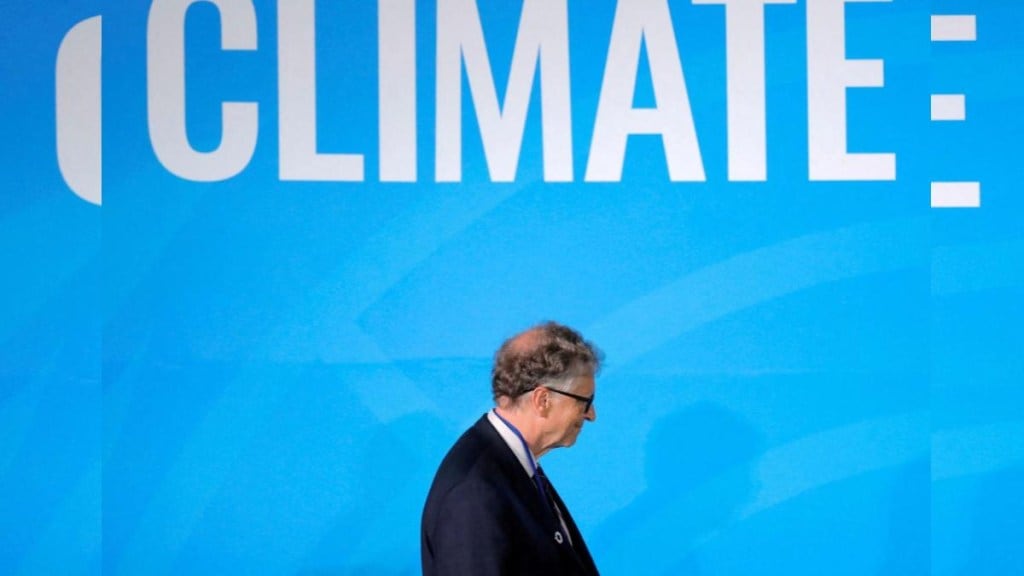‘How to Avoid a Climate Disaster’ was a book Bill Gates released in 2021. Fast forward four years, he called for a global reallocation of resources away from climate change activism and toward combating disease and hunger. What is now seen as a striking departure from mainstream environmental narratives, the billionaire philanthropist — long considered one of the strongest voices for carbon reduction — argued in a long essay that while climate change remains a serious challenge, it does not pose an existential threat to humanity.
“Although climate change will have serious consequences — particularly for people in the poorest countries — it will not lead to humanity’s demise. People will be able to live and thrive in most places on Earth for the foreseeable future,” he wrote.
“Climate change, disease, and poverty are all major problems. We should deal with them in proportion to the suffering they cause. And we should use data to maximize the impact of every action we take,” Gates wrote, urging policymakers and philanthropists to reconsider how aid money is distributed.
Ahead of COP30
The essay comes just weeks before COP30, the United Nations’ next major climate summit and marks a significant reframing of Gates’ earlier position. “I know that some climate advocates will disagree with me, call me a hypocrite because of my own carbon footprint (which I fully offset with legitimate carbon credits), or see this as a sneaky way of arguing that we shouldn’t take climate change seriously,” Gates wrote.
He further explained, “To be clear: Climate change is a very important problem. It needs to be solved, along with other problems like malaria and malnutrition. Every tenth of a degree of heating that we prevent is hugely beneficial because a stable climate makes it easier to improve people’s lives.”
Temperature targets to tangible human progress
Gates urged world leaders to shift their focus from temperature targets to tangible human progress like improving lives through energy access, healthcare and resilient agriculture, especially in vulnerable regions. Gates argued that these investments deliver fairer and more immediate benefits than abstract emission goals and should take centre stage at COP30.
Through his Breakthrough Energy network, Gates has poured billions into clean-tech innovation but he now wants policymakers to ask tougher questions about whether climate funds are truly driving impact. He urged donors to rely on data, not ideology and back technologies that can lower costs faster and reach more people.
Pointing to progress, Gates noted that deaths from natural disasters have fallen by 90% over the past century. “Direct deaths from natural disasters…have fallen 90 percent to between 40,000 and 50,000 people a year, thanks mostly to better warning systems and more-resilient buildings,” he wrote. “But indirect deaths from natural disasters have not followed the same pattern of decline. In most cases today, people caught in storms and floods are more likely to die from a waterborne disease than from drowning,” Gates argued.
Gates went on and explained, “I’m not saying we should ignore temperature-related deaths because diseases are a bigger problem…What I am saying is that we should deal with disease and extreme weather in proportion to the suffering they cause, and that we should go after the underlying conditions that leave people vulnerable to them.”

